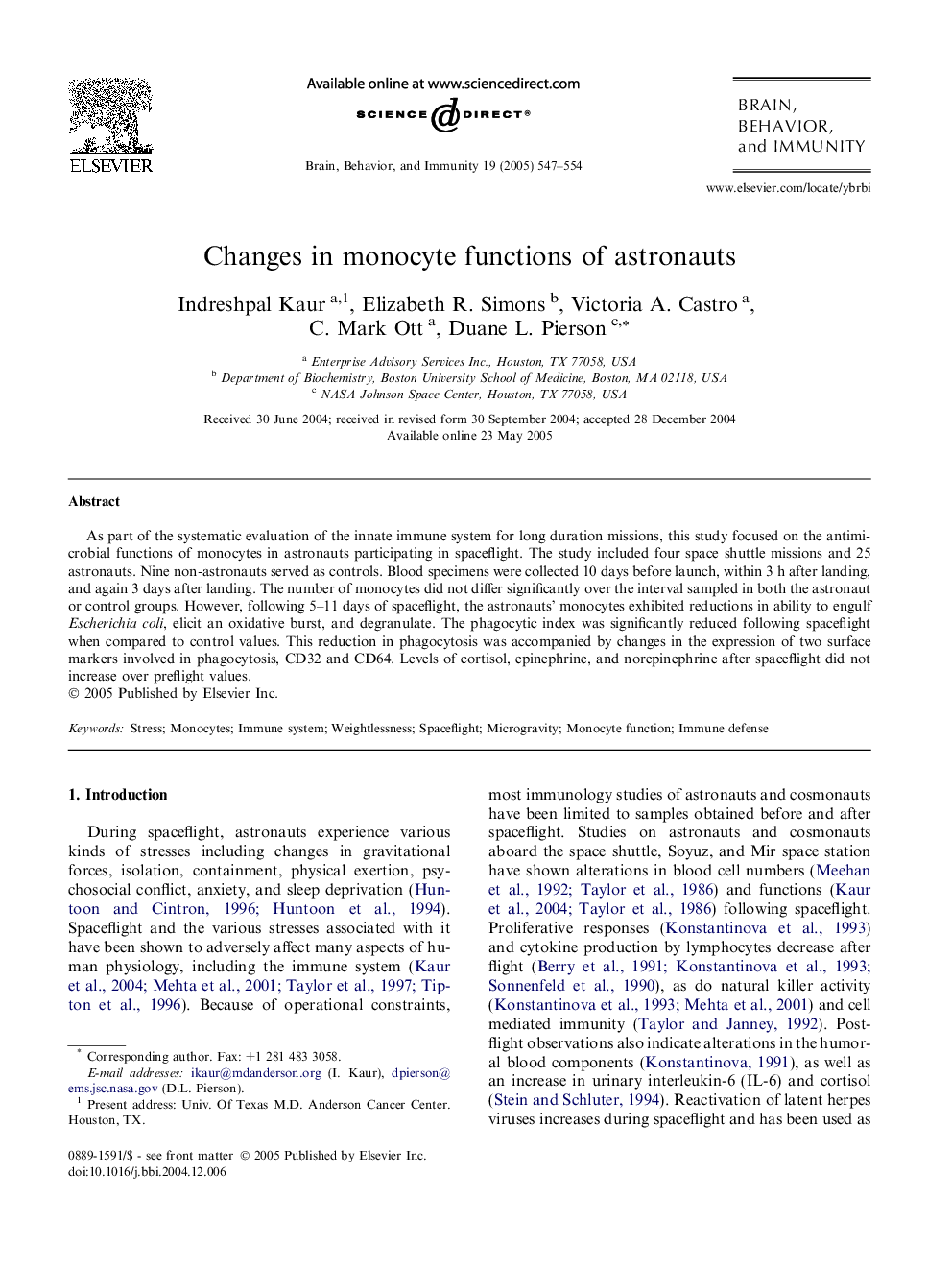| Article ID | Journal | Published Year | Pages | File Type |
|---|---|---|---|---|
| 10455118 | Brain, Behavior, and Immunity | 2005 | 8 Pages |
Abstract
As part of the systematic evaluation of the innate immune system for long duration missions, this study focused on the antimicrobial functions of monocytes in astronauts participating in spaceflight. The study included four space shuttle missions and 25 astronauts. Nine non-astronauts served as controls. Blood specimens were collected 10 days before launch, within 3Â h after landing, and again 3 days after landing. The number of monocytes did not differ significantly over the interval sampled in both the astronaut or control groups. However, following 5-11 days of spaceflight, the astronauts' monocytes exhibited reductions in ability to engulf Escherichia coli, elicit an oxidative burst, and degranulate. The phagocytic index was significantly reduced following spaceflight when compared to control values. This reduction in phagocytosis was accompanied by changes in the expression of two surface markers involved in phagocytosis, CD32 and CD64. Levels of cortisol, epinephrine, and norepinephrine after spaceflight did not increase over preflight values.
Keywords
Related Topics
Life Sciences
Immunology and Microbiology
Immunology
Authors
Indreshpal Kaur, Elizabeth R. Simons, Victoria A. Castro, C. Mark Ott, Duane L. Pierson,
